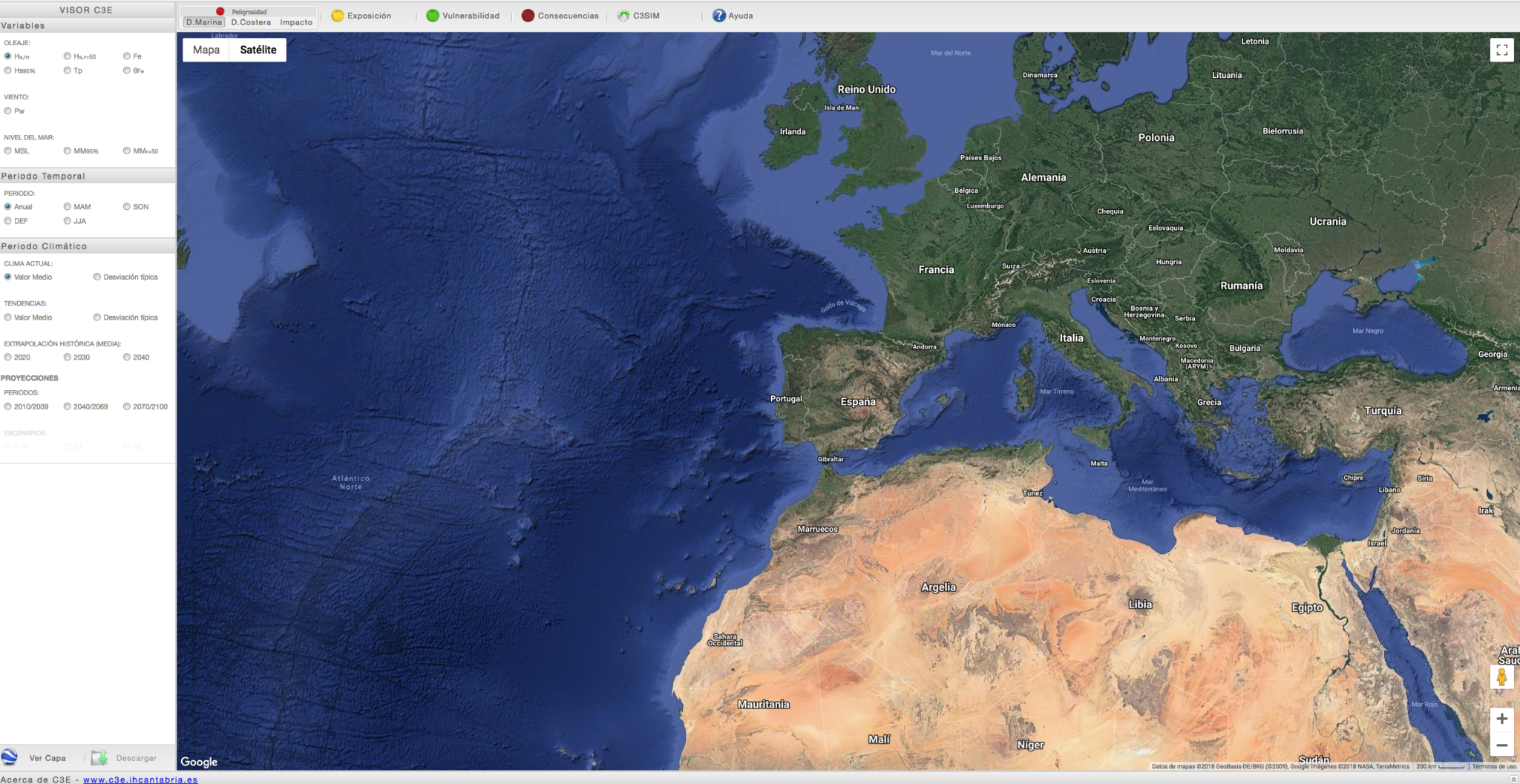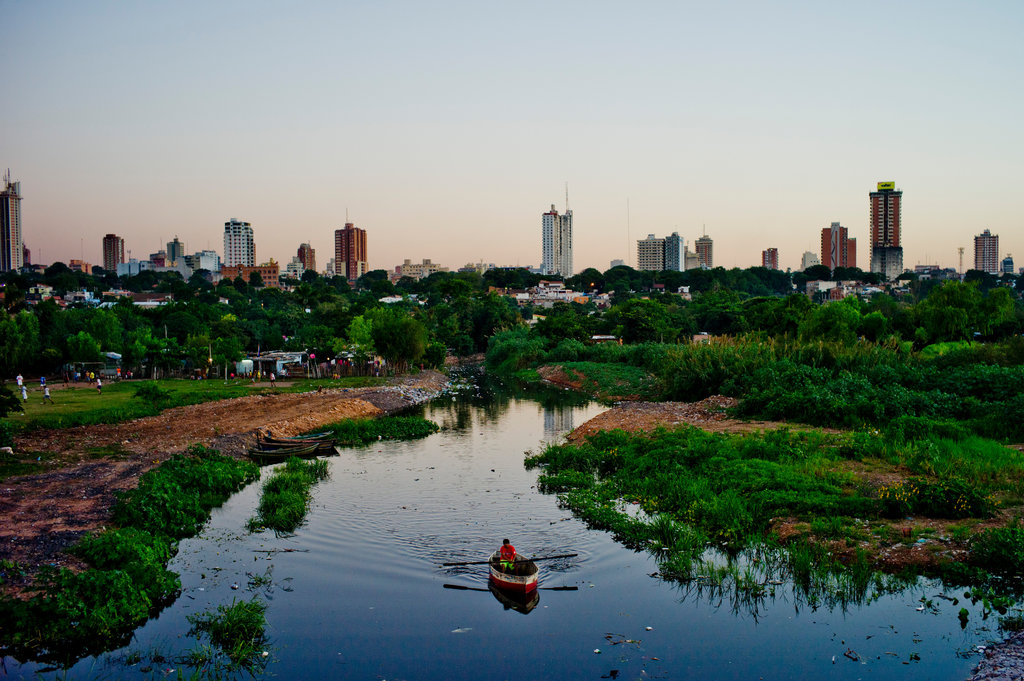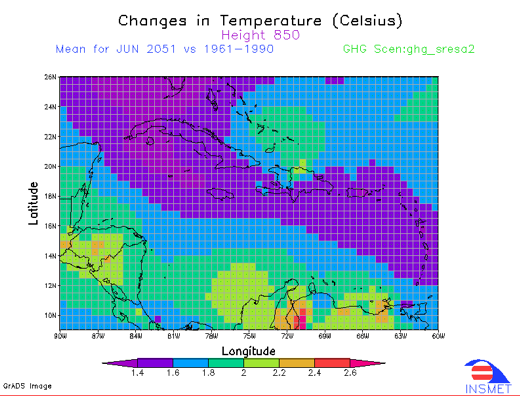CLIMATE CHANGE RISKS AND ADAPTATION
Climate change is a reality and a threat for multitude of zones of the whole planet. Changes in meteorological patterns and the rise of the level of the sea are an important risk especially in the coastal zones.
Although a series of measures have been established worldwide that should imply a reduction of the effects, it is necessary to consider how we can adapt to the new situation foreseen in the near future. This adaptation is developed around three fundamental questions: how will climate change affect us?, what will the damage be?, and how can we adapt by increasing our resilience?
At IHCantabria, we have experience and knowledge to analyze climate change from its effects until the design of solutions.
Methodology
By analyzing impacts, we are able to determine the extent of the flooding, erosion and other threats (such as winds or droughts) that climate change is expected to produce.
By characterizing the exposure and vulnerability of the populations and areas affected by previous impacts, we can quantify the expected damages and calculate the risk.
Thanks to specific studies of each case, we are able to develop a portfolio of measures that can be used to adapt as efficiently as possible, increasing the resilience of the affected societies.
Areas of Expertise
Flooding study with probabilistic analysis
Erosion study with probabilistic analysis
Characterization of the exposure
Including population, stock (residential, industrial, commercial), critical infrastructures.
Development of resilient solutions
Allowing adaptation to climate change customized for each situation and project.
Analysis of the consequences of climate change on coastal ecosystems
By characterizing said systems and the possible threats posed by changing environmental conditions.
Analysis of risk due to climate change
Development of risk maps and damage curves (historical, synthetic and hybrid). Probabilistic risk processing to obtain the expected annual damage.
SIGNIFICANT PROYECTS
SIGNIFICANT PROYECTS
Climate Change in the Spanish Coast (C3E)
The C3E project viewer integrates the results of the “Climate Change on the Spanish Coast” project that was carried out from 2009 to 2012 for the Spanish Office of Climate Change of the Ministry of Agriculture, Fisheries and Food.
Learn More
development of the disaster risk profile for paraguay
One of the most relevant challenges for floating offshore wind is the development of platforms with low operating costs that can be outfitted and/or maintained in conventional ports. This entails the use of low-maintenance materials such as concrete, which has a proven durability in marine environments.
Let’s talk
How can we help you?
Send me a message. I will get back to you as soon as possible
Let’s talk
How can we help you?
Send me a message. I will get back to you as soon as possible

ÍÑIGO J. LOSADA
Researcher || Senior Expert in Climate Change and Adaptation
We advise you that your personal data will be processed by FUNDACIÓN INSTITUTO HIDRÁULICA AMBIENTAL DE CANTABRIA, in order to manage your request and maintain professional and commercial relations with you. Your data will not be transferred to third parties. This data treatment is necessary to attend your request. Your data will be kept until you unsubscribe from the service and/or after a reasonable time has passed since we attended to your request. You can exercise your rights of access, rectification, cancellation, opposition, portability and limitation of the processing of your data by contacting the FUNDACIÓN INSTITUTO HIDRÁULICA AMBIENTAL DE CANTABRIA, PCTCAN C/ISABEL TORRES, 15, 39011 SANTANDER (CANTABRIA), or rgpdihcantabria@unican.es with a copy of your ID card duly accrediting your identity. In any situation, you have the right to file a complaint with the Spanish Data Protection Agency (AEPD)






